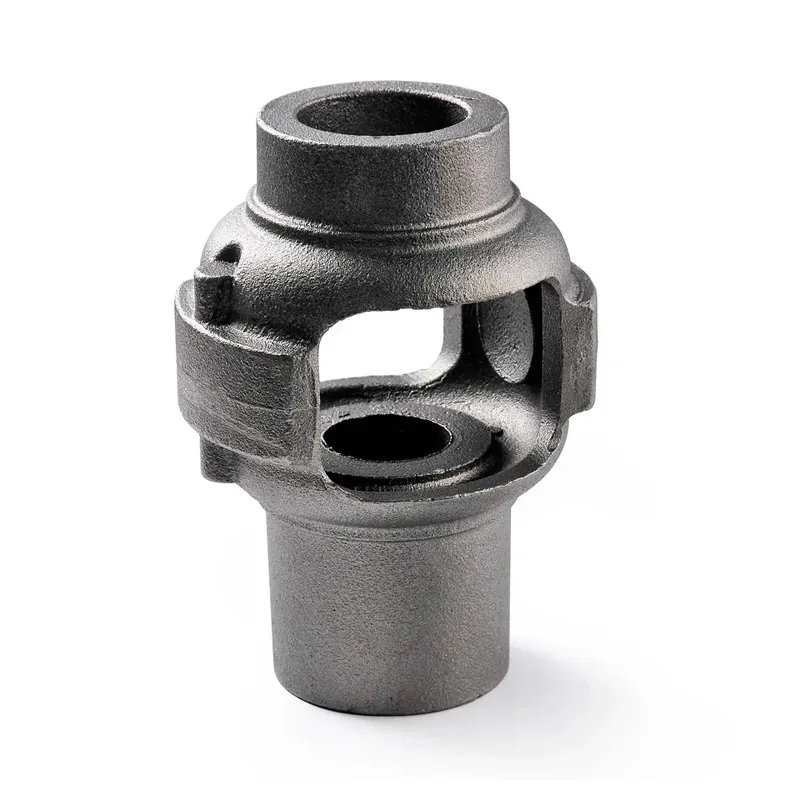The Versatility and Applications of Iron Casting in Modern Industry
2024-07-26
Introduction
Iron casting is a cornerstone of modern manufacturing, providing the foundation for countless industries. Its versatility and durability make it an indispensable material for a wide range of applications. In this blog, we'll explore the diverse uses of iron casting in today's industrial landscape, highlighting its benefits and why it remains a preferred choice for engineers and manufacturers.

The Advantages of Iron Casting
Iron casting offers several advantages that make it a popular choice for various applications:
1. Strength and Durability: Cast iron is renowned for its strength and ability to withstand high levels of stress and wear. This makes it ideal for components that need to endure harsh conditions and heavy usage.
2. Cost-Effectiveness: Iron casting is a relatively economical process, especially for large production runs. The raw materials are abundant and affordable, and the process itself can be highly automated, reducing labor costs.
3. Versatility: Iron casting can produce parts of varying sizes and complexities, from small, intricate components to large, robust structures. This versatility allows for a wide range of applications across different industries.
4. Thermal Conductivity: Cast iron has excellent thermal conductivity, making it suitable for applications involving heat exchange or heat retention, such as engine blocks and cookware.
Applications in Various Industries
1. Automotive Industry: The automotive industry is one of the largest consumers of cast iron. Engine blocks, cylinder heads, and brake discs are commonly made from cast iron due to its strength and heat resistance. The durability of cast iron ensures that these critical components can withstand the rigors of automotive operation.
2. Construction and Infrastructure: Cast iron is widely used in construction for structural and decorative elements. Manhole covers, pipes, and architectural details like columns and facades benefit from the material's strength and longevity. Cast iron's ability to support heavy loads makes it indispensable in infrastructure projects.
3. Machinery and Industrial Equipment: Heavy machinery and industrial equipment often rely on cast iron parts. Gearboxes, pumps, and compressors use cast iron components to ensure reliable operation under demanding conditions. The wear resistance of cast iron is crucial for the longevity of these machines.
4. Cookware and Domestic Appliances: Cast iron's thermal properties make it a popular choice for cookware. Cast iron skillets, Dutch ovens, and griddles provide even heat distribution, making them favorites among chefs and home cooks. Additionally, cast iron is used in some domestic appliances, like stoves and heaters, for its heat retention capabilities.
5. Agriculture: In the agricultural sector, cast iron is used to manufacture durable equipment such as plows, harrows, and other tillage tools. These components need to withstand rough conditions and heavy usage, making cast iron an ideal material.
6. Energy Sector: The energy industry also benefits from iron casting. Wind turbines, for instance, often use cast iron for their gearbox housings due to the material's strength and ability to dampen vibrations. Cast iron components are also found in oil and gas extraction equipment.
Future Trends in Iron Casting
The future of iron casting looks promising, with ongoing innovations and improvements enhancing its capabilities. Some emerging trends include:
1. Advanced Materials: Development of new iron alloys with improved properties, such as increased strength and corrosion resistance, expands the range of applications for cast iron.
2. Smart Manufacturing: Integration of IoT (Internet of Things) and AI (Artificial Intelligence) in iron casting processes leads to smarter manufacturing systems. These technologies can optimize production, predict maintenance needs, and reduce downtime.
3. Sustainability: As industries strive for greener practices, sustainable iron casting methods are gaining traction. Recycling of materials, energy-efficient processes, and reduced emissions are key focus areas for the future.
Conclusion
Iron casting remains a vital process in modern industry, offering unmatched versatility and durability. Its wide range of applications, from automotive and construction to cookware and energy, showcases its importance in our daily lives. With ongoing advancements and a focus on sustainability, iron casting is set to continue playing a crucial role in shaping the future of manufacturing and industry.


